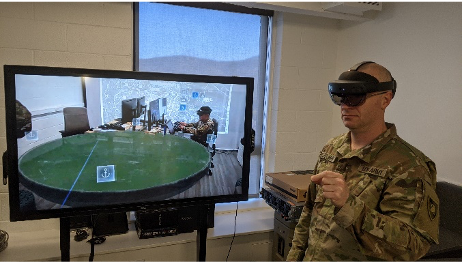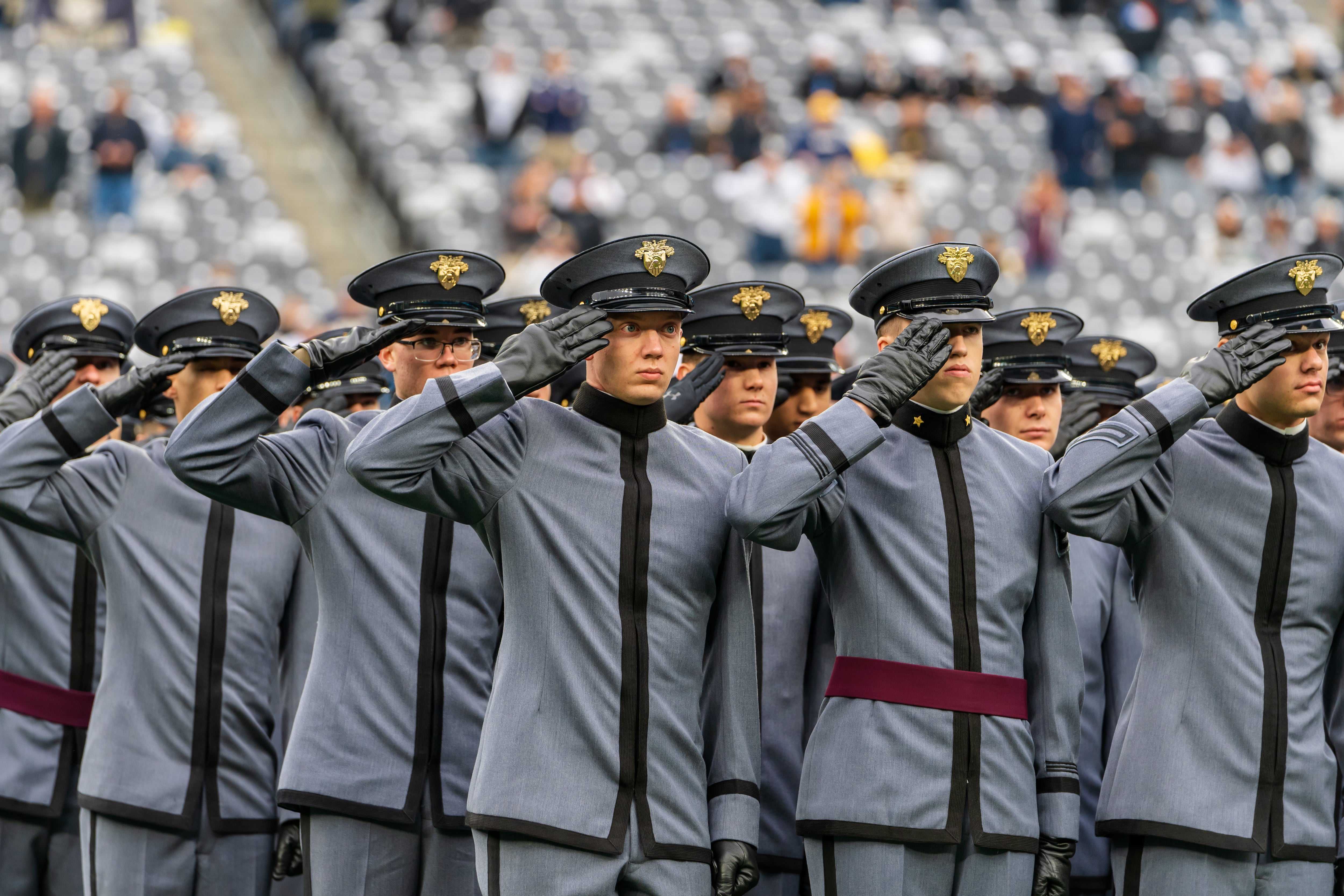Wrestling with legal questions on how to use high-energy lasers to strike low-orbiting satellites. Designing and testing a hypersonic rocket test vehicle to cross the 100 kilometer line.
These are key future warfare problems that need solutions.
But it is not colonels or generals in the Pentagon or some underground research facility doing the work; it’s cadets at the U.S. Military Academy at West Point piecing the puzzle together.
The above scenarios, involving Cadets Ashley Clegg and McKenzie Arns on lasers and law and Cadet Josiah Gibson on hypersonics, are only a sample of a list of complex work that cadets now undertake at the Army’s premiere university.
The work has not-yet-minted Army officers looking deeply at technical and ethical questions and producing solutions, Brig. Gen. Shane Reeves, dean of the U.S. Military Academy, told Army Times.
The institution continues with its centuries-old basic military leadership and liberal arts education, the foundations for critical thinking needed even more than in the past, he said.
“We don’t intellectually coddle them, we can’t afford it,” Reeves said.
The academy promotes an open forum to discuss tough questions. Cadets must be pushed in a way that they’re uncomfortable with intellectually, Reeves said. Faculty expect disagreement in the classroom and want students to argue with each other, but support those arguments with evidence.
The combination of advanced educational tools and approaches with the age-old enlightenment thinking gives future Army leaders advantages in the classroom but, more importantly, also on a future battlefield.
And, Reeves noted, military observers are seeing the reverse play out in Ukraine.
“If you watch the Russians in Ukraine, what’s been most shocking is the second the Russians hit an obstacle, the second that their young officers hit a wall…they froze, they didn’t know what to do,” Reeves said. “And all of the sudden, they had to call up senior leaders, colonels and generals to try to get momentum.”

Reeves pointed to the “very robust” noncommissioned officer corps in the Army and U.S. military at large as the bulwark of what makes it successful. He also pointed to the expectation that U.S. generals have for young officers to think their way out of a problem.
West Point also has a storied history of training young officers to fill military and civil engineering roles in the early years of the U.S. Those engineering problems have only gotten more complex.
What’s happening now at West Point, Reeves said, is a move toward more collaborative, project-based learning and strategic-thinking. A lot of that is mirrored across higher education.
In past decades, colleges operated on a transactional model, where students came to a class, listened to a lecture and were assessed on what was shared. Now, across the academy, students at an undergraduate level are doing deep research, giving them “applied learning” experiences that were formerly reserved for graduate-level education.
Reeves said the shift has helped fuel “intellectual curiosity” and provided “disciplinary depth.”
“They like to be challenged and challenging cadets with opportunities to grapple with, what I would consider real world problems for real world customers,” Reeves added.
Not every new second lieutenant is going to go straight to working with missile laboratories upon graduation. They’ll still be expected to serve where and how the Army needs them.
“We develop them to be selfless servants who have to understand followership and how to be led,” Reeves said.
But, Reeves noted, the larger, ongoing talent management efforts across the Army are better matching soldiers with areas of interest and expertise that serves both their capabilities and the Army’s needs.
For example, the academy graduates 40 to 45 cyber officers into the force each year. That’s a job that didn’t exist a decade ago.
“Cadets as future officers are going to be making decisions under the stress of combat and therefore, they have to be able to evaluate between perspectives through well-reasoned analysis,” Reeves said.
Todd South has written about crime, courts, government and the military for multiple publications since 2004 and was named a 2014 Pulitzer finalist for a co-written project on witness intimidation. Todd is a Marine veteran of the Iraq War.




